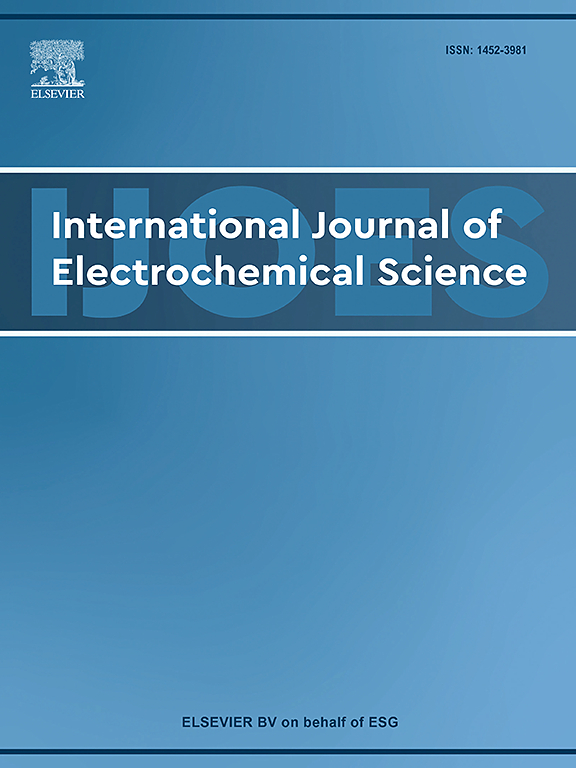废聚丙烯超疏水膜在3.5% %氯化钠溶液中对碳钢的防腐
IF 2.4
4区 化学
Q4 ELECTROCHEMISTRY
International Journal of Electrochemical Science
Pub Date : 2025-07-11
DOI:10.1016/j.ijoes.2025.101125
引用次数: 0
摘要
聚合物基涂料的缓蚀能力往往受到添加剂、化学品和复杂制造方法的限制。在这项研究中,我们使用串联溶解和自旋铸造工艺将废弃聚丙烯(PP)重新利用成功能薄膜,使其能够直接应用于金属表面,以增强其耐腐蚀性。这种方法消除了化学接枝或纳米填料掺入的需要,提供了一种更简单、更可持续的表面保护途径。所得膜的最大水接触角(CA)为157°,具有超疏水性。电化学阻抗谱(EIS)测量表明,电荷转移电阻(Rct)有明显改善,从裸碳钢的184 Ω·cm²增加到pp涂层表面的16,000 Ω·cm²。通过利用塑料废物作为原料,这种方法提供了一种环保且具有成本效益的替代传统聚合物基缓蚀剂的方法。本文章由计算机程序翻译,如有差异,请以英文原文为准。
Superhydrophobic films from waste polypropylene for corrosion protection of carbon steel in 3.5 % sodium chloride solution
The corrosion inhibition capabilities of polymer-based coatings are often limited by their reliance on additives, chemicals, and complex fabrication methods. In this study, we repurpose waste polypropylene (PP) into functional films using a tandem dissolution and spin-casting process, enabling direct application onto metal surfaces for enhanced corrosion resistance. This method eliminates the need for chemical grafting or nanofiller incorporation, offering a simpler and more sustainable route to surface protection. The resulting films exhibit a maximum water contact angle (CA) of 157°, indicating superhydrophobic behavior. Electrochemical impedance spectroscopy (EIS) measurements show a marked improvement in charge transfer resistance (Rct), increasing from 184 Ω·cm² for bare carbon steel to 16,000 Ω·cm² for the PP-coated surface. By utilizing plastic waste as a feedstock, this approach presents an environmentally responsible and cost-effective alternative to conventional polymer-based corrosion inhibitors.
求助全文
通过发布文献求助,成功后即可免费获取论文全文。
去求助
来源期刊
CiteScore
3.00
自引率
20.00%
发文量
714
审稿时长
2.6 months
期刊介绍:
International Journal of Electrochemical Science is a peer-reviewed, open access journal that publishes original research articles, short communications as well as review articles in all areas of electrochemistry: Scope - Theoretical and Computational Electrochemistry - Processes on Electrodes - Electroanalytical Chemistry and Sensor Science - Corrosion - Electrochemical Energy Conversion and Storage - Electrochemical Engineering - Coatings - Electrochemical Synthesis - Bioelectrochemistry - Molecular Electrochemistry

 求助内容:
求助内容: 应助结果提醒方式:
应助结果提醒方式:


